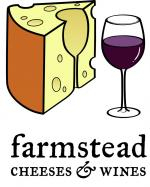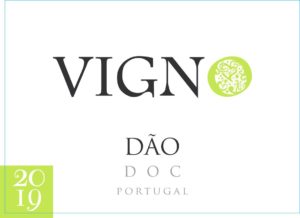A bottle of each
VIGNO DAO BRANCO (ORGANIC)
CHATEAU PEGAU CÔTES-DU-RHÔNE BLANC LONE (ORGANIC)
VIGNO DAO BRANCO (ORGANIC)
Elisa Freire Lobo began her winemaking career in 1996, working and studying in the Bairrada region at Caves São João and the following year in the Douro with Anselmo Mendes. Being that she grew up in the Dão region, the oldest non-liqueur DOC in Portugal, she decided to return to her roots where she quickly became the very first woman winemaker in the region. In the ensuing years, she went on to work with many of the most respected producers of the region, including Casimiro Gomes, Carlos Rodrigues, Carlos Lucas, Alvaro Castro and the late Magalhães Coelho.
Elisa’s family has been growing grapes in the Dão for decades, so the next logical step would be to take over the family vineyards, which she did in 2010. Immediately, she began the conversion to organic farming, in order to respect the soil, plants and biodiversity of the 35 acres that she began farming. Between November and February, the vineyards are grazed by Bordaleiras sheep, which are typical of the mountainous Serra da Estrela where these vineyards lie at an elevation between 1500 and 2500 feet above sea level.
The sheep help control grass growth during wet months as well as adding essential natural fertilizer to the vineyards. Grasses and legumes are planted and encouraged the rest of the year as cover crops that improve the soil structure, increase fertility and help better manage the nutrients and limited water available in this poor, granitic soil. The cover crops stimulate biodiversity in the soil and vineyards, an essential part of long-term vineyard management. Only traditional Portuguese varietals are planted.
Reds include Touriga Nacional, Alfrocheiro, Tinta Roriz, Jaen, Alvarelhão, Baga, Bastardo, Tinto Cão, Camarate and Rufete. Whites include Encruzado, Cerceal, Bical, Fernão Pires, Malvasia and Barcelo. These are all harvested manually and some of their vineyards include ancient field blends, planted to virtually all of the above named varietals. The traditional methods of the vineyards flow directly into the winery where all fermentations are spontaneous using only indigenous yeasts.
50% Encruzado, 35% Bical, and 15% Cerceal. Encruzado has got to be my favorite Portuguese white grape these days. It’s got great structure and mouthwatering acidity for extended ageability, but fleet of foot, bursting with citrus and stone fruit flavors. Lightly creamy, fun and refreshing, with a backbone of lemon zest, pine needle, green apple, and tangy minerality. Wet slate, pomelo, pear – goes with any type of seafood.

CHATEAU PEGAU CÔTES-DU-RHÔNE BLANC LONE (ORGANIC)
In 2012, Châteauneuf-du-Pape icons Paul and Laurence Féraud purchased a 100+ acre estate in Sorgues, and renamed it Château Pégau. It is an exceptional terroir situated less than 4 miles southeast of Châteauneuf-du-Pape. Loaded with classic Côtes du Rhône fruit and spice, the wines retain the hallmark stamp and identity of Pégau.
It consists of 148 acres and a large rundown Chateau of 10,000 square feet. The vineyards include 62 acres of Cotes du Rhone Villages and 12 acres of Cotes du Rhone, with the balance Vin de Table. Laurence bought it and rechristened it Château Pégau. For the first vintage, she and Paul learning their way, they declassified most of the Villages to Cotes du Rhone. The red Côtes du Rhône carries the name Château Pégau Cuvée Maclura. The Cotes du Rhone Villages (15% of the production) is Chateau Pégau Cuvée Setier. These are complemented by a white Cotes du Rhone, Château Pégau Cuvée Lône. The wines are emphatically not Chateauneuf-du-Pape, nor are they priced that way. However yields have been kept to the absurdly low limits permitted in Chateauneuf, and the wines have all of the density of that great Appellation.
40% Clairette, 30% Bourboulenc, 20% Grenache Blanc, 10% Ugni Blanc
Cuvée Lône offers fresh melon, pear, and jasmine on the deeply scented nose. Fleshy and broad but lively as well, offering juicy honeydew and orchard fruit flavors given spine by a zesty mineral quality. Shows very good intensity and power on the finish, which hangs on with tenacity and suave floral notes.



